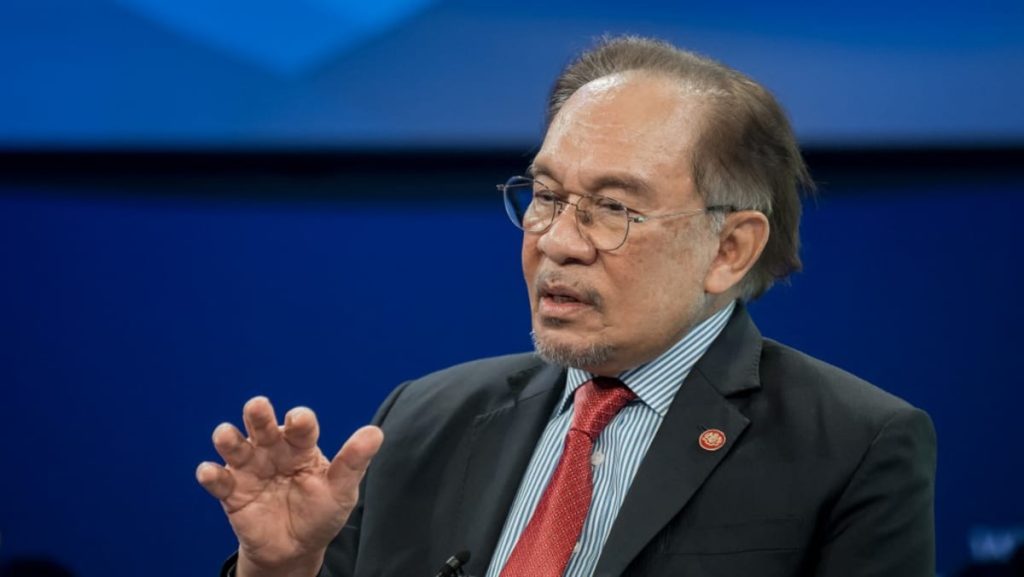Malaysian Prime Minister Anwar Ibrahim, speaking at the World Economic Forum in Davos, Switzerland, addressed the complexities of regional geopolitics, particularly regarding China’s role in the South China Sea. He argued against singling out China for criticism over maritime disputes, emphasizing that border disagreements are common throughout Asia and should be managed through dialogue and diplomacy, not confrontation. Anwar cited Malaysia’s own experience with border issues involving Singapore, Thailand, Indonesia, and the Philippines, highlighting that despite these ongoing complexities, Malaysia maintains strong and productive relationships with these neighbors. He underscored the importance of prioritizing economic cooperation and regional stability over escalating tensions.
Anwar’s central argument revolves around the notion of normalizing border disputes as an inherent aspect of international relations, particularly in a region as geographically diverse and historically intertwined as Asia. He contends that while differences and disagreements exist, they should not preclude constructive engagement and cooperation on other fronts. His focus on Malaysia’s experience with its neighbors serves as a practical example of how countries can navigate complex territorial issues while simultaneously fostering strong economic and political ties. This pragmatic approach, he suggests, should also be applied to the South China Sea dispute, where focusing solely on the contentious aspects risks overshadowing the potential for mutually beneficial cooperation with China.
Addressing the South China Sea issue directly, Anwar acknowledged Malaysia’s own maritime concerns with China, but stressed the importance of maintaining open communication and a balanced approach. He emphasized China’s “reasonableness” in its dealings with Malaysia, suggesting a more nuanced perspective than often presented in international discourse, which frequently portrays China as an aggressor. Anwar subtly contrasted China’s engagement with Malaysia to that of some of Malaysia’s traditional allies, implying a greater degree of respect and understanding from China, although he refrained from naming specific countries. This comparison suggests a strategic recalibration of Malaysia’s foreign policy, seeking to leverage its relationships with both established powers and rising regional giants.
Anwar’s Davos remarks reflect a broader trend in Southeast Asia of balancing relationships between major powers, particularly the United States and China. While acknowledging the strategic importance of the United States as a long-standing ally, Anwar emphasized the crucial role China plays as a major economic partner and a significant regional player. He highlighted the need for a pragmatic approach, suggesting that prioritizing economic fundamentals and maintaining strong ties with China is essential for Malaysia’s prosperity and regional stability. This nuanced approach reflects the complexities of navigating the evolving geopolitical landscape in the Indo-Pacific, where smaller nations like Malaysia often seek to maintain balanced relationships with both superpowers to avoid being drawn into a great power rivalry.
Anwar’s emphasis on the importance of China for Malaysia’s economic future underscores the growing economic interdependence between the two countries. China’s Belt and Road Initiative, substantial investments in infrastructure projects, and increasing trade volumes have cemented its economic influence in the region. Anwar’s statement that China takes Malaysia “more seriously” than some traditional allies could be interpreted as a recognition of this economic clout and an appeal for greater engagement and investment from all partners. By highlighting China’s responsiveness to Malaysian concerns, Anwar implicitly suggests a more pragmatic and less confrontational approach to resolving disputes, prioritizing mutual benefit and economic cooperation over potentially destabilizing actions.
In conclusion, Anwar Ibrahim’s message at Davos advocates for a nuanced and pragmatic approach to regional geopolitics, particularly in the context of the South China Sea dispute. He argues against isolating China, emphasizing the commonality of border disputes in the region and advocating for continued engagement based on mutual respect and economic cooperation. His emphasis on Malaysia’s experience with its neighbors, coupled with his recognition of China’s economic significance, points towards a strategic recalibration of Malaysian foreign policy, aimed at maximizing benefits from relationships with both established powers and emerging giants. This balanced approach reflects the complex realities of navigating the evolving geopolitical landscape in the Indo-Pacific, where smaller nations seek to maintain their sovereignty and prosperity by deftly managing relationships with all major players.

